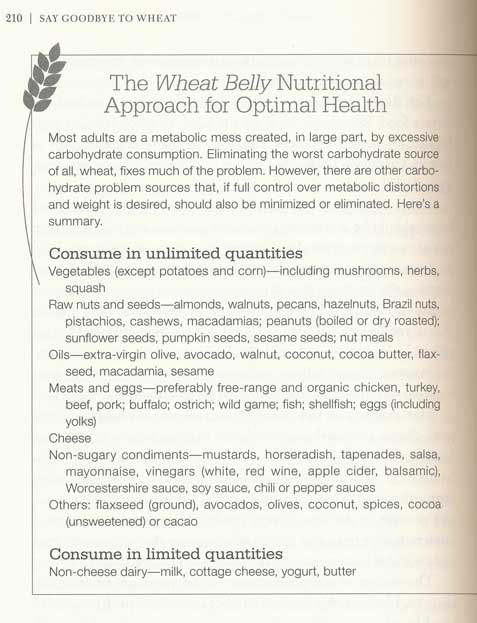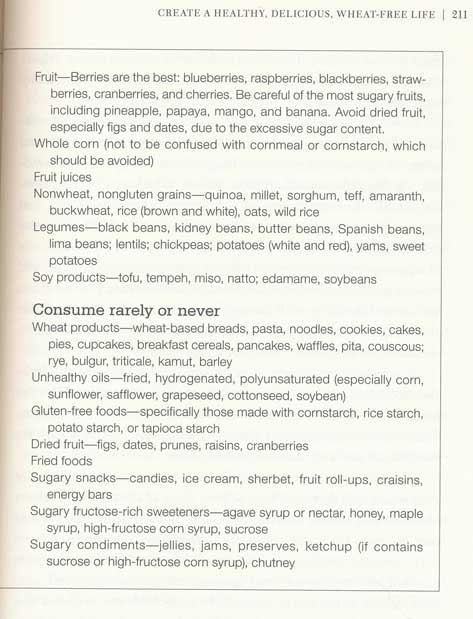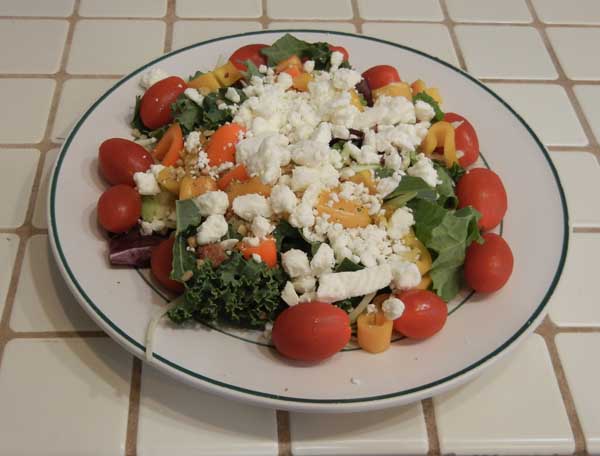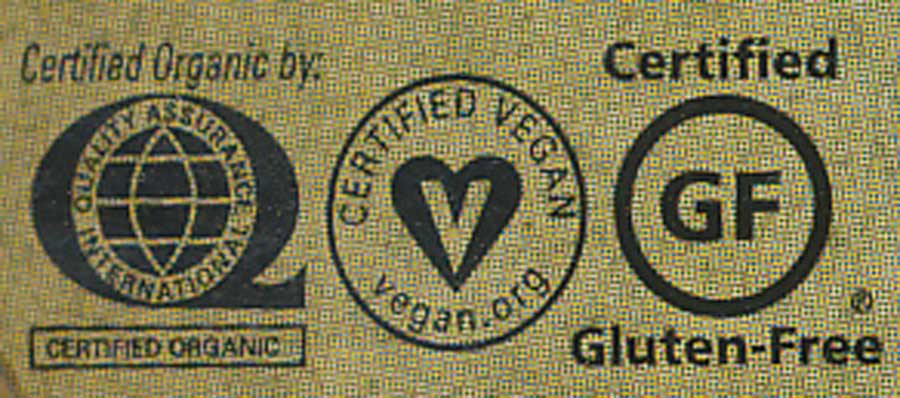MY GLUTEN-FREE TEST
I just finished my big meal of the day and it
was glorious. I had about 5 oz. of filet mignon, medium-well, and a bunch
(scientific term for lots) of Brussels sprouts. I had the A-1 sauce at the
ready but didn’t even use it – the filet was remarkable. I did apply a bit
of ranch dressing to the sprouts. It occurred to me that my new
gluten-free (GF) diet was pretty nice!
Gluten was a word that I had heard many times,
but to which I’d never given much attention. I thought of it primarily as
a meat substitute. I also knew that some people with celiac disease were
allergic to it and had severe reactions to even minute quantities. The
first time it moved up in my consciousness was when Bill O’Reilly mentioned in
his final tip segment that he had gone gluten-free and he suggested that others
might try it. I tucked it away somewhere, but not in any priority section
of memory.
In October 2013, I had a dental hygiene and
check appointment and Stephen seemed to have lots of time to chat. We got
on the subject of gluten and he gave me a seminar on the benefits of going GF.
He recommended the book “Wheat Belly” (WB) and it interested me. I ordered WB
and read it over my trip to Bar Harbor (BH) to meet twin granddaughters Scarlet
and Clover.
WB has a number of case studies claiming
remarkable improvements in health by just going GF. The primary thrust was
toward relief for celiacs, but diabetics and people with intestinal woes, bone
density issues, high cholesterol, skin conditions, and arthritis were all said
to find improvement. Some studies suggest that gluten (and/or its
byproducts) may actually breach the blood brain barrier and lead to dementia, a
condition of concern to people my age. GF has some potential downsides as
well, for which those who attempt it must watch.
I don’t buy everything in WB, but if only 10%
of it is valid, it may be worth giving up gluten. I planned a great
experiment to see if it is valid. I set out to give up gluten and products
with major wheat content for three months starting January 2014. I was not
going 100%, as a celiac must, throwing out every utensil that had ever touched
gluten, and not buying anything that even mentions starch in the ingredients,
but I planned to give it what I considered to be a legitimate try.
I listed several of my personal conditions
that are discussed in WB. I recorded the status of these conditions at the
beginning of the three month trial and reviewed them every half-month for any
detectable change. For many of them I did not expect to see a change, but
for some I fully expected to see improvement. Some have clear metrics
associated with them and others depended on an objective evaluation on my part.
There was an initial bias introduced due to my
habit of going alcohol-free in January. I typically lose 6 or 8 pounds
from that factor alone. However, on February 1 I planned to resume my
daily glass of red wine with yummy and recommended resveratrol.
(Experiments with mice suggest that the daily dosage of red wine required for
humans to duplicate the effect on mice is 60 liters per day.)
THE DIET
This is a summary of the diet quoted from WB.


BEGINNING STATUS
This is a list of the conditions that I have
been monitoring because they are mentioned in WB as potentially subject to
improvement by a GF diet. Included is the status of these conditions at
the beginning of the great experiment.
Weight: 210#
Belly/waist: 46” over hernia / 42” waist
Blood pressure: 120/70 (I take 5mg of
Lisinopril daily to help reduce bp and would like to discontinue this.)
Pulse: 43 (I had a 24 hour Holter
monitor test once and the low was 37 when I was sleeping.)
Back pain: I have lumbar pain most
mornings when I get out of bed. It fades away during the day, but if I sit
still for a while or drive for a while, some pain comes back. Over the
last six months of 2013 I had taken Baclofen or Meloxicam about 4 times on days
when pain was somewhat greater than usual.
Ankle swelling: Seems to be related to
alcohol consumption, liquor more than wine, left ankle more than right.
The swelling always goes away overnight.
Rosacea/age spots/scalp: Rosacea on lips and
chin, age spots on hands, arms, and all over, scalp itches and produces rubbery
deposits. When I was in BH, the rosacea nearly went away. The
differences were temperature (it was very cold), use of Barbasol instead of
Foamy shaving cream, and bedding and towels were washed with (something else)
instead of the Ultra Free I use at home. To further complicate the test, I
planned to use Barbasol during the three months.
Irregular bowels: I was once very
regular. Two cups of decaffeinated coffee in the morning provided proper
stimulation. More recently I have no activity for 2 or 3 days and then a
fairly large one. Not uncommon is a very firm starter followed by one or
more loose ones.
Slow urine flow: The two or three trips
to the toilet at night are typically 10-15 min sit-downs with slow but complete
voidance of the bladder. Daytime visits are more efficient.
Dry mouth at night: Mouth and tongue are
dry when I wake up. I usually rinse my mouth and drink half a glass of
water after each potty trip.
Excess sleeping: I’ve always been a good
sleeper (apparently taking after my mother’s side), but lately I could sleep for
10 hours and still nap during the day. Don’t know how long this has been
going on, but quite a while.
Watery eyes: Eyes watered a lot for no
apparent reason. No doctor I’ve told has ever been concerned.
Neuropathy in fingers/toes and feet: A
gift of the chemotherapy after my cancer surgery was a tingly and numb feeling
in my fingers and toes and feet.
Hair falling out: Hard to tell if this
is the normal shedding, but it seemed to be more so going into the experiment.
Slightly woozy: Occasionally I would
experience a bit of instability – hard to judge.
Lack of decisiveness: Occasionally.
Part of this is that I am usually faced with an almost unlimited range of
choices.
Lack of incentive for exercise: Rolling
over and going back to sleep replaces getting up for a walk.
Vision: Trivial blurriness – probably
dirty car windows or sunglasses, but could be related to HbA1c.
Lipids/electrolytes/sugar: I keep these numbers in an associated table – tests are planned to be redone six weeks after this report. (I take 20mg of Simvastatin daily to reduce cholesterol and would like to discontinue that.
HbA1c / hemoglobin bA1c is a measure of a
condition called glycation related to diabetes. For the last couple of
years my number has been 5.8. Kaiser says acceptable is between 4.3 and
6.1. However, the lower the better. WebMD suggests that 4.0 to 5.6
is “normal”, 5.7 to 6.4 indicates increased risk of diabetes, and 6.5 and above
indicate diabetes. GF could lower this number.
ENDING STATUS
Weight: 199#: Lost a total of 11#
over the three month test – most of it during the first month when I was
abstaining from alcohol. After a bump in Feb., I started losing again, but
at a slower rate.
Belly/waist: 46” over hernia / 42” waist
– I really don’t see a change in the measurements, but I need to move my belt to
the next hole to keep my pants up.
Blood pressure: 120/70 – I’ll let the
professionals measure this when I see them soon. After that I will talk to
my primary about discontinuing the 5mg of Lisinopril daily to help reduce bp.
Pulse: 43 – I’ve checked a couple times
and don’t see any significant change. Last check was 37 while at rest.
Back pain: Lumbar pain in the mornings
when I get out of bed has faded considerably. I haven’t needed pain meds during
the three months
Ankle swelling: By the end of this test,
swelling was barely detectable.
Rosacea/age spots/scalp: Rosacea has
quieted. Other things are probably part of life.
Irregular bowels: The bright elusive
butterfly of regularity has not been recaptured. I may require chemical
supplement.
Slow urine flow: No change, but
surprisingly, I have been sleeping through many nights and getting up for potty
call only once other nights.
Dry mouth at night: No longer an issue.
Excess sleeping: Same, but probably a
non-issue.
Watery eyes: Same, but probably a
non-issue.
Neuropathy in fingers/toes and feet:
Same, not apt to change.
Hair falling out: Same, but probably a
non-issue.
Slightly woozy: Same.
Lack of decisiveness: Same, but probably
a non-issue.
Lack of incentive for exercise: Worse,
but I blame that on the rain and wind.
Vision: Trivial blurriness – about the
same.
Lipids/electrolytes/sugar: Blood tests are
planned to be redone six weeks after this report. After the tests, I will
talk to my primary about discontinuing the 20mg of Simvastatin daily to reduce
cholesterol.
HbA1c / hemoglobin bA1c: Test TBD in six
weeks.
ANALYSIS / COMMENTS
Generally speaking, I’m doing fine with the
new diet. Notably, I’ve lost some weight and the rosacea has calmed.
Back pain, ankle swelling, and dry mouth have improved. As a bonus, my
nighttime trips to the potty have diminished. Other conditions remain
about the same, but the most complicated effects of gluten take months to
change.
I followed the WB GF diet generally, but not
strictly. I did remove all breads, pastas, noodles and cereals, but small
amounts of starches sneaked in as ingredients in processed foods.
Looking at the two page summary of the WB diet
above, I must confess that I did eat items from the “Limited quantities”
category. I’m guilty of yogurt, butter, berries, bananas, quinoa, brown
rice, beans, and potatoes – but in the prescribed limited quantities. I
must also confess to entering the “Rarely or never” category. I’ve tried a
few GF products (see next paragraph), had one piece of candy per day, and used
light syrup on pancakes, but none of these were what I would call excessive or
often.
To my recollection I have *never* prepared mac
and cheese, but when I saw the GF package I couldn’t resist. It was pretty
good, but of course had some of the starches the WB diet decries. I tried
GF quinoa. I bought one package of GF “oreos” that were really not bad.
And finally I bought several packages of GF BBQ “strings” which are addictive
and should never be consumed from the bag!
I absolutely don’t miss pasta (never did much
care for it) and don’t miss bread very much. I have never felt hungry,
since I can eat as much as I want of the allowable items. In fact, at the
time for a meal, I sometimes just don’t feel like doing something formal and
tend to snack on poke, pickled herring, cheese, deviled eggs or something else
that tends to be high protein. I also frequently have large salads.

I did find myself confused at times because,
although WB stresses GF, it goes even farther. Products
labelled GF are discouraged because they contain starches.
Sugars are GF, but discouraged due to diabetes. I admit that
I used some of these products, even though they were discouraged.
It is difficult to have a number of goals at the same time.
My primary goal was to be gluten-free. And
apparently I do have a sweet tooth to contend with.
So, how’s it going? Do the WB claims
hold water? To begin with, the magic weight loss claim of WB seems unreal.
If you eat and drink more calories than you burn, you gain weight – whether
those calories are gluten-laden or GF. Other claims are still TBD.
It has been three months. Will I go on –
absolutely! Will I ever go back? I may back off a little, but the
changes are so minor for me, and I have learned so much by really reading
nutrition labels, I doubt that I will ever go all the way back to before
gluten-free.
I have learned a lot about nutrition based on
reading the ingredients lists on products. Some old standbys have
absolutely shocked me and caused me to banish them. The cranberry juice
that I used to drink has *seven teaspoons of sugar* in each 8 oz. serving!
Nearly everything has sugar in it, often the first on the list. Sometimes
it is hidden – must look for fructose, honey, molasses, etc.
Gluten is also hidden as various kinds of
starch. Look for *gluten-free* on the package.
A number of foods that were part of my pre-GF
diet have turned out to have the GF label. I don’t know how long that has
been the case since I never used to look for it. Examples are Spam,
Coffee-mate, Kirkland Turkey Breast lunch meat, Hidden Valley Ranch Dressing
(light), Hormel Chili with Beans, and others.
I stopped at Hawaiian Moons, the nearest
health food store to my place, and learned a bit. I stopped at Whole Foods
(WF) in Kahului and learned some more. That place has tags saying
Gluten-Free, Organic, Free-Range, Low-Fat, Fat-Free, etc. on items all over the
store. WB says that you shouldn’t trust the labels – buy things with NO
labels (e.g., unprocessed, raw fruits, vegetables, and nuts).
Recently I went to three different stores and
looked for salad dressing. Do you know that nearly every commercial salad
dressing has high sugar content? I was shocked. I did finally find
one that claimed 0g sugar – I’m anxious to try it. It is Organic Ville
Sesame Tamari Organic Vinaigrette (Certified Gluten Free, Organic, and Vegan).
I’m really not that familiar with sesame, and vinaigrette is not something with
which I’ve had much experience, so stay tuned. BTW, tamari is pure soy
sauce – regular soy sauce has up to 50% wheat content!

At WF they have a shelf with all sorts of
flours and other specialty items, all labeled with their particular claim to
fame like GF, organic, etc. One item on that shelf is Wheat Gluten!
I can just imagine processors vacuuming out the gluten to make GF products and
bagging it for those who actually want gluten.
I have had to learn to steam vegetables.
I previously used canned veggies or just boiled the crap out of raw ones.
Pizza ads catch my attention for a moment or two. Surprisingly, sweets are
the only thing I kind of crave, and truly, if I were only doing GF, I could
indulge myself on a piece of candy. However, WB, (and my personal
interests) recommend limiting sugar intake as well.
Truvia was mentioned in WB as a suitable
substitute for sugar for anyone wanting to cut back. Gordy gave me a few
packets to try. I am nonplussed.
I had seen the word in print before reading
WB, but I never explored it. I asked Stuart what quinoa was. He
corrected my pronunciation to keen-wa and loosely defined it. I
purchased some in bulk from WF and also in a box from Safeway’s new GF shelf.
How’s this for a simple recipe?
1 cup quinoa
2 cups water
½ teaspoon salt
Rinse quinoa vigorously until the water runs
clear, bring to a boil in water and salt, turn down the heat and simmer until
done (15 or 20 min.), let stand for 5 min., and fluff before eating.
I cooked the boxed product first, partly
because it didn’t require rinsing, but also just to see what it should taste
like. It was garlic-flavored and I found it to be quite good.
I like quinoa with a little butter on it.
It is very good tasting just that way, but it can be combined with almost
anything – fruits, vegetables, meats, anything. I had leftover filet
mignon on a bed of quinoa the other day and that worked fine. In my mind at
least, quinoa is a substitute for mashed potatoes, oatmeal, pasta, and breakfast
cereal.
I purchased brown rice flour and tried a
recipe for GF pancakes. They were edible, but they weren’t pancakes.
I used the leftover wafers to make “sandwiches”. They aren’t bread either.
Next try I added a cup of cooked quinoa and
some baking powder to the recipe, and while it still didn’t make terrific
pancakes, they were *much* better. However, the baking powder was long out
of date, so I bought a fresh can of baking powder and the difference was
remarkable. Replacing ¼ cup of rice flour in the original recipe with a
cup of cooked quinoa and adding 2 teaspoons of fresh baking powder makes a
product that can almost be called pancakes.
AFTERWORD
During the past three months, I believe our local
weather has been unusually cold, with lots of rain and wind.
In addition, the universe, the Milky Way, the solar system, Earth, and Pono have
all gone through their regular rhythms. I observed one month
of alcohol abstinence and three months of a new way of eating.
I’ve been more conscious of my health than at any
time since I was on chemotherapy. I feel remarkably well.
Now, which of the elements in the above paragraph is responsible for my
condition? I don’t know, but of those elements, the only one
I can control is what I put in my mouth. Let’s see what
happens….